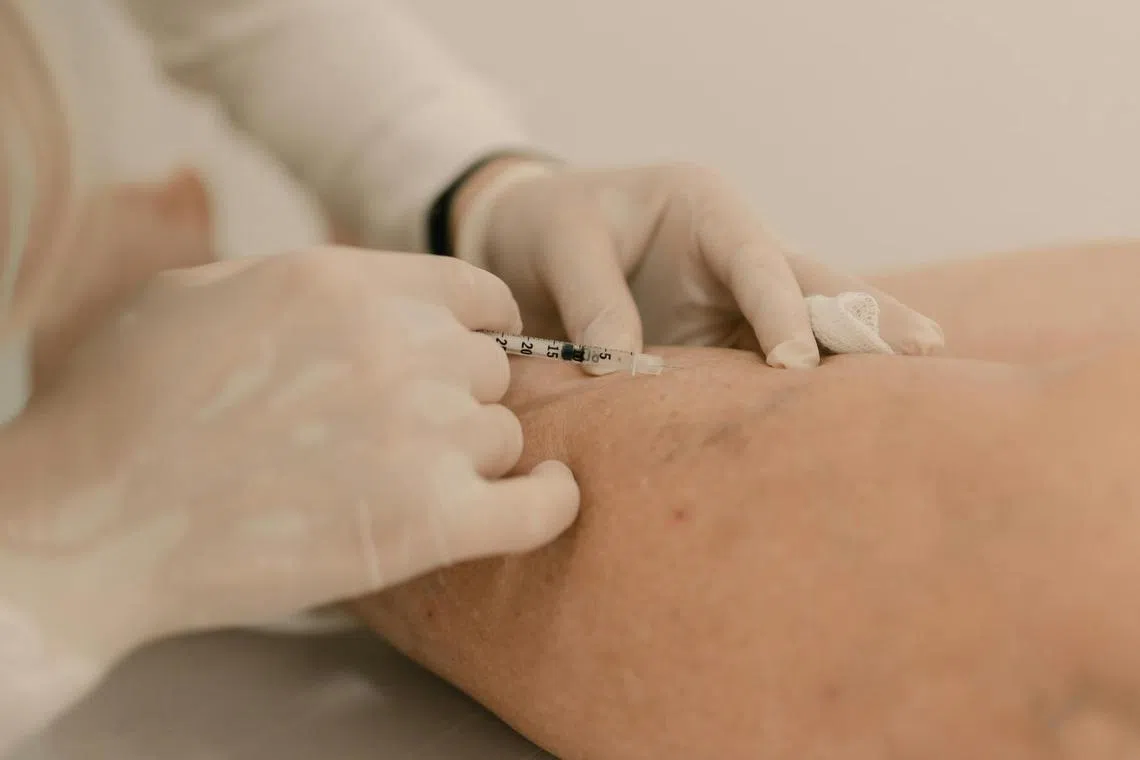Shingles vaccine may lower the risk of heart attack and stroke
Sign up now: Get ST's newsletters delivered to your inbox

Overall, vaccination against shingles was associated with an 18 per cent reduction in risk of heart attack or stroke in adults aged 18 and older.
PHOTO ILLUSTRATION: PEXELS
Getting the vaccine to prevent shingles, also known as herpes zoster, lowers the chances of having a heart attack or stroke, researchers reported before the 2025 European Society of Cardiology Congress in Madrid.
The risk reduction, seen in data pooled from nine earlier studies, was true in adults of all ages who received either of the two herpes zoster vaccines – the two-shot Shingrix vaccine from GlaxoSmithKline or Merck’s single-dose Zostavax, which was discontinued after findings that its protection faded over time – the researchers said.
Overall, vaccination against shingles was associated with an 18 per cent reduction in risk of heart attack or stroke in adults aged 18 and older, and a 16 per cent risk reduction in adults aged 50 and older.
For Shingrix, there was a 21 per cent lower risk of either outcome.
For every thousand people, shingles vaccination was linked with 1.2 to 2.2 fewer major adverse heart events per year, the researchers also found.
None of the studies included in the analysis looked at death rates.
Previous research has shown a transient increased risk of stroke and heart attack after a case of shingles, but it remains unclear whether vaccination explains the lower risks seen in this analysis.
“While our findings are encouraging, there are some limitations to the available data,” study leader Charles Williams of GSK said.
Almost all the evidence came from observational studies, which cannot prove cause and effect. And the studies involved generally healthy patients, not people at higher risk of cardiovascular events, he noted.
“Further research studies are now needed to find out whether this association can be attributed to an effect of herpes zoster vaccination,” he said. REUTERS


